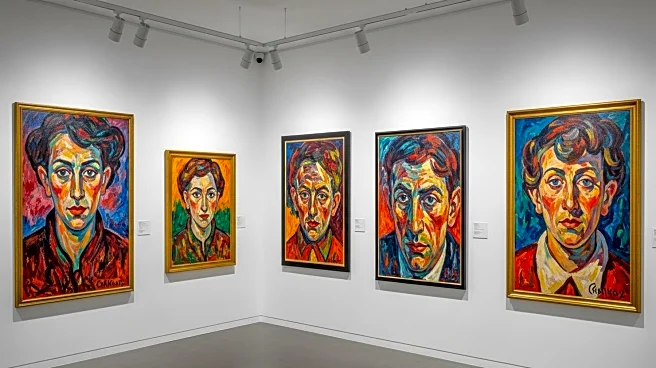What is the story about?
What's Happening?
The Los Angeles County Museum of Art (LACMA) has been gifted over 100 works of Austrian Expressionism by the family of Otto Kallir, a prominent art dealer who immigrated to the United States in 1938. This donation includes LACMA's first paintings by renowned artists Gustav Klimt, Egon Schiele, and Richard Gerstl. The collection also features works by Alfred Kubin, Oskar Kokoschka, and Marie-Louise von Motesiczky, as well as German artists Lovis Corinth and Käthe Kollwitz. The donation follows a recent gift from the Pearlman Foundation, which included paintings by Vincent van Gogh and Édouard Manet. The artworks will be transferred to LACMA over several years, enhancing its collection of German Expressionism, which has been a focus of the museum's scholarship and exhibitions.
Why It's Important?
This significant donation enriches LACMA's collection, positioning it as a leading institution for Austrian Expressionism in the United States. The inclusion of works by Klimt and Schiele addresses a previous gap in the museum's holdings, allowing for a more comprehensive representation of Expressionist art. The gift also underscores the historical and cultural ties between Los Angeles and the Austrian émigré community, which contributed to the city's artistic landscape during the 1930s and 1940s. By expanding its collection, LACMA can offer deeper insights into the evolution of modern art and its impact on American culture.
What's Next?
LACMA plans to showcase the newly acquired artworks in an exhibition titled 'Austrian Expressionism and Otto Kallir,' opening on November 23, 2025, and running through May 31, 2026. The exhibition will feature 24 works from the gift, curated by Timothy O. Benson at LACMA's Robert Gore Rifkind Center for German Expressionist Studies. This exhibition will provide an opportunity for scholars and the public to engage with these influential works, fostering greater appreciation and understanding of Austrian Expressionism.
Beyond the Headlines
The donation highlights the enduring legacy of Otto Kallir, who played a pivotal role in introducing Austrian Expressionism to America. His efforts to promote artists like Schiele, who were initially dismissed by the Nazis as 'degenerate,' reflect the complex interplay between art, politics, and cultural identity. The gift also raises questions about the preservation and interpretation of art in the context of historical trauma and displacement, offering a platform for dialogue on these issues.















